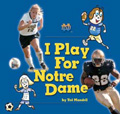 |

OpEd Columns
 |
 |
 |
TV101: Lesson Kids Must Learn to Keep Control (Indianapolis Star 06/10/06)
I stare at pictures in my office of my kids' eyes. Six years, 4 years, 12 months old. They are brilliant, pristine globes. Blue as the ocean, unmarked, reflective of light.
Innocent. But not for long.
As they get older, that light reflected in their eyes will bear the stamp of our crushing culture of images. The pop rockets' red glare. The media bombs bursting in air. I can't hold them back much longer. They are relentless.
My oldest son has been germinating in his bunker for the first six years of life, partly sheltered by his weary parent from the visual and auditory assault of America's pop culture. I tried to keep him away long enough for his mind to grow without the fog of commercialism obstructing each life lesson.
But in America, it's inevitable. Either accept the barrage of images, sounds and signs, or move to an island inhabited by Jeff Probst.
You must learn to deal with the ills and thrills of pop culture. My kids will have to deal with it. I see it as a war. The battles are on billboards, in magazines, on the big screen.
But the main battleground is inside my home, on the television.
We live in times where 36-inch kids worship 60-inch TVs. Times where the television is both an entertaining diversion and the most powerful educational tool we have -- this side of the human being.
Huh? TV is educational?
Yes, the television is educational. It's also persuasive, powerful, deceptive and manipulative.
Manipulated. That's the education our kids are getting unless we teach them not what to watch, but rather teach them how to watch.
We teach how to read letters, words and sentences. But who teaches children how to read images? Who teaches television to our kids?
Sure, we talk about the plot of the show. We talk about the story on the news. We accept what we see. We never question it. We never uncover the artifice, or dissect the fake world we immerse ourselves in every time we pick up the remote.
How was it made? Who was holding the camera? Why are we watching? No one teaches that to young children.
It's never too early to learn, right?
Spanish, Latin, calculus, biology. How many hours do your kids spend experiencing those subjects in a day? A fraction of the time they spend watching TV.
Let's face it. From generation to generation, we're breeding image-illiterate children who have a naïve trust in the tube.
TV mimics the world we live in. However, it's not the world we live in. From Iraq to "Idol," real news to reality TV, television is, at best, clever fiction or well-researched point-of-view. At worst, it's a nonstop sales pitch camouflaged as information and entertainment.
Imagine this. What if no one ever explained tooth decay to you? Then, at the age of 18, you took a life-changing college course. On the first day of class, Professor Clemons pulled a toothbrush out of his tweed jacket and explained that brushing your teeth daily actually helped fight cavities.
Wow, really? I'll brush both of my teeth tonight!
Wouldn't that be enlightening? Wouldn't you ask why it took two decades before anyone explained that to you?
To be informed in the United States, some amount of television is a necessity. Information is not a bad thing. Entertainment is not a bad thing. But unless you're quicksilver fast with a remote, you will ultimately lose the fight to separate the TV good from the TV bad for your child. Too much content processed too rapidly. You simply can't sift through all the sand on the boob-tube beach for your kid.
At some point, your child and my child will consume enough TV to question their values, persuade their fashion and carve their image of countries they'll never visit.
So wouldn't it be refreshing if they were taught at an early age the hows and lies of television and our pop culture? Then maybe they wouldn't buy Britney Spears perfume by the case or the daily scare tactics of local TV news.
History, math, English, science, television.
TV and the visual arts should be taught from first grade to high school. It's time to teach our children that images are in many ways more lasting, more powerful, and potentially more damaging than words.
Ted Mandell teaches in the Department of Film, Television, and Theatre
at the University of Notre Dame.
Copyright 2006 Ted Mandell.